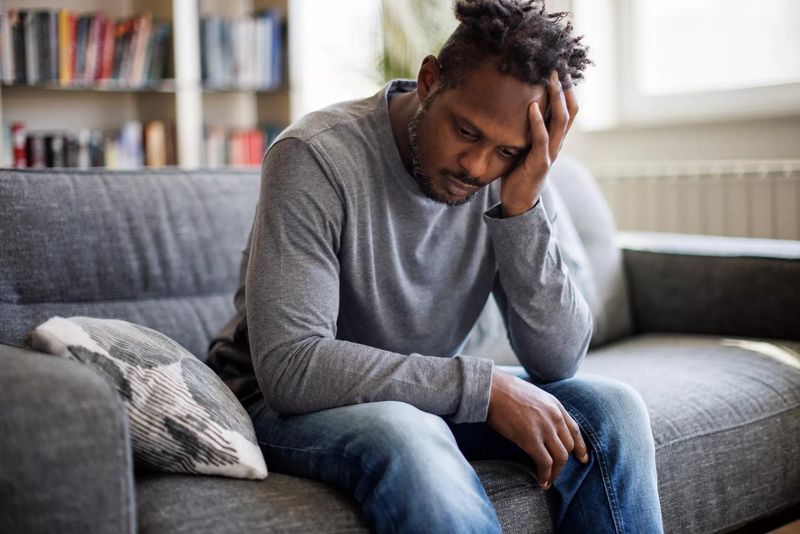17 Reasons Why Men Pull Away From Women Even If They Love Them
Understanding why men sometimes pull away in relationships, even when they deeply care for their partners, can offer valuable insights into the dynamics of love and connection. Emotional and situational factors often play a significant role, leading to confusion and heartache for both parties involved.
This list explores 17 common reasons behind such withdrawal, shedding light on the complexities men face in relationships.
1. Fear of losing independence

Freedom is a cherished value for many. Men, in particular, may fear that entering a deeper relationship could mean losing their independence. The thought of losing personal space and autonomy can lead to anxiety.
This concern often stems from societal expectations that relationships require sacrifice of self for the sake of unity. Balancing individuality within a partnership can be a daunting task.
Men may pull away to reclaim their sense of self, seeking reassurance that they can maintain their freedom while being committed.
2. Overwhelm from life or work stress

Life’s pressures can sometimes become too much to bear. Stress from work or personal responsibilities can lead men to withdraw emotionally.
When overwhelmed, they might not have the emotional bandwidth to nurture a relationship, causing them to pull away inadvertently. Their retreat is a coping mechanism to handle stress more efficiently.
Often, they need space to decompress and refocus before they can fully engage in the relationship again.
3. Struggling to express emotions

Expressing emotions is not always easy. Many men find it challenging to articulate their feelings, leading to misunderstandings. This struggle often results from societal norms that discourage emotional vulnerability in men.
When they can’t communicate their emotions effectively, they may retreat, fearing judgment or rejection.
This withdrawal is a protective measure to avoid feeling inadequate or misunderstood, as they navigate their internal emotional landscape.
4. Worrying about meeting expectations

Meeting expectations can feel like an insurmountable task. Men often feel pressured to meet their partner’s expectations, whether real or perceived.
This pressure can stem from the desire to be seen as the ideal partner. When they feel they can’t meet these expectations, anxiety and self-doubt may arise.
To cope, they might distance themselves, seeking to escape the weight of these expectations, even if only temporarily.
5. Feeling suffocated in the relationship

The feeling of being trapped can be overwhelming. Some men pull away because they feel suffocated by the relationship’s demands.
This sensation might not stem from anything their partner has done, but rather from their own perceptions and fears. They might feel the need to breathe freely and regain a sense of personal space.
Taking a step back can provide the perspective needed to appreciate the relationship’s value without feeling engulfed.
6. Past heartbreaks shaping current behavior

Past experiences often shape present behaviors. Men who have endured heartbreak might be wary of opening up again.
The fear of repeating past mistakes or getting hurt can lead them to pull away. These unresolved issues from previous relationships cast long shadows over their present interactions.
They withdraw as a means to protect themselves from potential pain, even if the current relationship is healthy and loving.
7. Fear of long-term commitment

Commitment can be a daunting prospect. Some men fear the permanence associated with long-term relationships.
The idea of forever can feel overwhelming, leading them to question their readiness. This fear might not reflect on their partner but on their own uncertainties.
Pulling away becomes a way to reassess their desires and determine if they are ready for such a significant step.
8. Personal insecurities surfacing

Insecurities can be a silent destroyer of connection. Personal doubts about worthiness or attractiveness can cause men to withdraw.
These feelings often arise from internal struggles rather than the relationship itself. When insecurities surface, they might fear that their partner will see them as inadequate.
Pulling away is sometimes a method of self-preservation, as they grapple with their self-image and fears.
9. Needing space but not asking for it

Everybody needs space at times, but not everyone knows how to ask for it. Men might not articulate their need for solitude, fearing it will be misunderstood as disinterest.
Instead, they might simply withdraw, hoping their partner will understand their unspoken need. This retreat is not a reflection of their feelings but a natural ebb and flow of personal space.
Recognizing this need can help maintain balance in the relationship.
10. Misunderstanding what intimacy really means

Intimacy is often misunderstood. Some men equate it with physical closeness, overlooking the emotional aspects.
This misconception can lead to confusion about their own feelings, causing them to pull away as they reassess their understanding of intimacy. They might fear that their emotional needs aren’t being met or understood.
In distancing themselves, they seek clarity about what they truly desire from the relationship.
11. Comparing the relationship to unrealistic standards

In the age of social media, comparisons are inevitable. Men may pull away when they compare their relationship to idealized portrayals online.
These unrealistic standards can create dissatisfaction and doubt, making them question their relationship’s worth.
Feeling inadequate, they might withdraw, believing that their connection doesn’t measure up to these perfect images, even though reality is often different.
12. Pressure to “fix” everything perfectly

Men often feel the pressure to be the fixers. They are expected to solve problems and ensure everything runs smoothly.
This expectation can weigh heavily, especially when they feel they’re failing to meet it. When faced with relationship issues, they might pull away, believing they’ve fallen short.
Their retreat is not due to a lack of love but a desire to avoid facing their perceived inadequacies.
13. Avoiding conflict instead of addressing issues

Conflict can be intimidating. Some men prefer to avoid it rather than face it head-on.
This avoidance can lead to withdrawal when problems arise in the relationship. They might hope that by stepping back, tensions will dissipate on their own.
However, this retreat often leads to further misunderstandings, as unresolved issues linger in the background.
14. Feeling like their needs aren’t being heard

Communication is key, yet not always effective. Some men pull away when they feel their needs are overlooked or misunderstood in the relationship.
This sense of not being heard can lead to frustration and disconnection. They might retreat emotionally as a means to cope with the perceived neglect.
Their withdrawal is a silent plea for their needs to be acknowledged and valued.
15. Doubting if they’re ready for next steps

Taking the next step can bring doubts. Men may question their readiness for marriage or cohabitation, even if they love their partner.
These doubts can arise from personal fears or societal pressures. They might pull away to reflect on whether they truly want to progress or need more time.
Their temporary distance is not a rejection but a period of contemplation to ensure they make the right decision.
16. Getting too comfortable and taking love for granted

Comfort can sometimes lead to complacency. Men might take their relationship for granted as they settle into routine.
This comfort can cause them to unintentionally overlook their partner’s needs, leading to emotional distance. Their love remains, but it becomes buried under everyday monotony.
They may need a wake-up call to recognize that maintaining connection requires effort and attention.
17. Internal battles they don’t know how to share

Internal struggles can be isolating. Men might face personal battles they find difficult to articulate, leading to withdrawal.
These struggles can range from mental health issues to existential crises, leaving them feeling alone and misunderstood.
Their retreat is not a reflection of their feelings for their partner but a means to process their emotions in solitude. Understanding and patience can help bridge this emotional gap.







